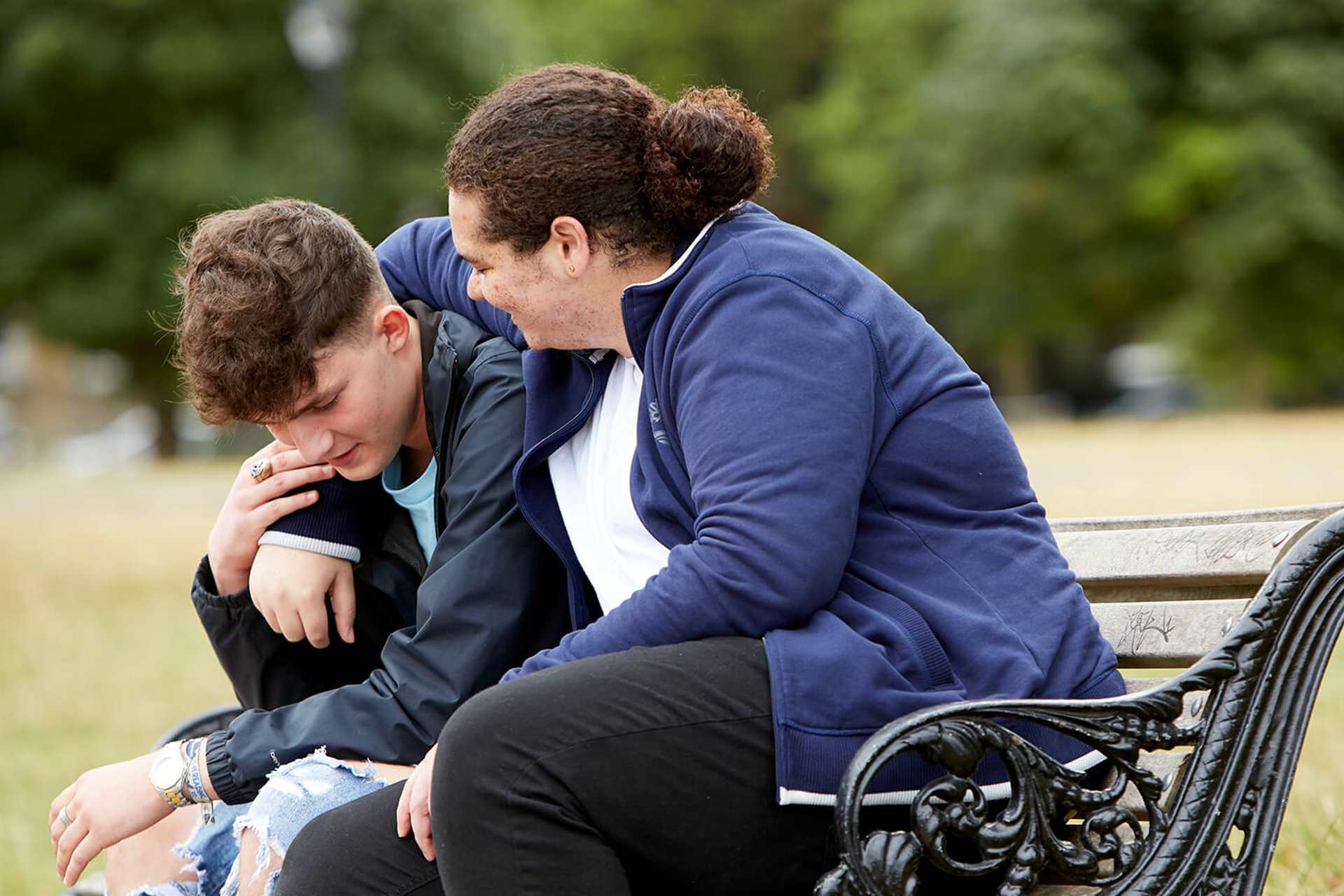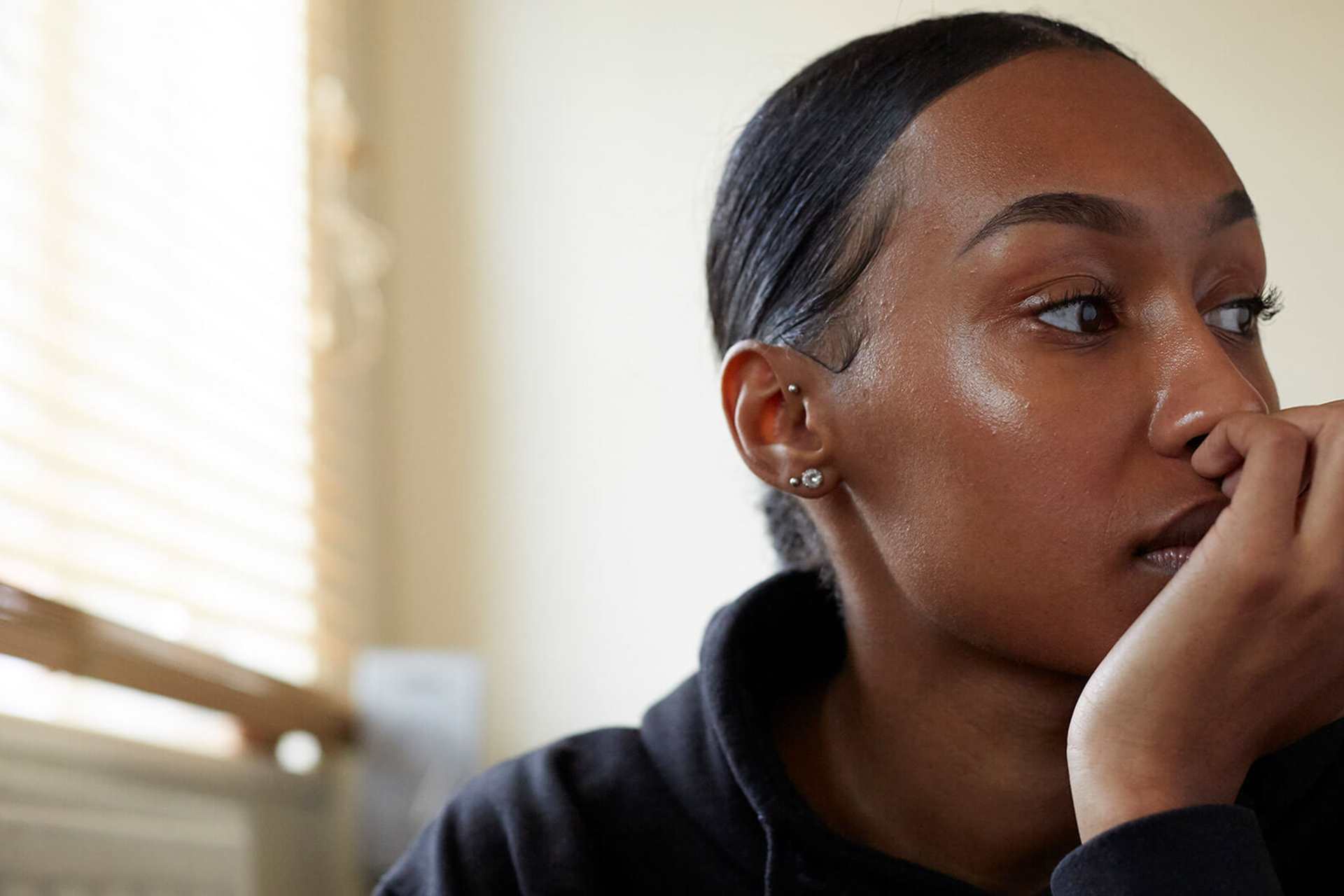Topics mentioned: supporting a friend with their mental health
About: It can be difficult to know how best to support a friend who has an "invisible illness". Alfie shares his tips.
Chances are, if you're reading this, your friend has just told you that they're ill, and you want to know what the best way is for you to be able to help them. Firstly, on behalf of that friend, I'd like to thank you. You've ticked the number one thing off the list right away; you care, and you want to help.
I think that there are four simple ideas you can keep in mind, which will help you to be able to help your friend:
Saying something supportive like, "I hope you get well soon, I'll see you when you're feeling better," can really help your friend out.
Understand that they might not look ill
Sometimes illnesses, either physical or (especially) mental, can look invisible. Your friend might not look any different now they’ve been diagnosed compared to how they looked when you first met them.
That means that when they say they need to go home early from school, college or a day out, because they are feeling unwell, it's best not to say something like, "But you look well! Surely you're okay?" Instead, saying something supportive like, "I hope you get well soon, I'll see you when you're feeling better," can really help your friend out.
The other side to this is that if, one day, your friend does look particularly unwell, don't make a big thing out of it. I can absolutely promise you that if you've noticed it, they definitely have.
Normally, looking unwell means that they're feeling worse than normal. Instead, think about saying something supportive like, "I hope you’re feeling okay, let me know if I can do anything." You might find that they don't take you up on your offer, but they might. If they do take you up on it, try your best to help them, please.
And if you won't be able to help them, don't offer. I think anyone would rather not be offered help than to be offered it and then not receive it.
If you think that you aren't in the right place yourself to share their load, please don't try to take it on.
Listen to them, if you can
Being ill brings with it a lot of emotion, a lot of feelings. Confusion, anger, frustration, to name but a few. If your friend is anything like me, they don't like to talk about the ins and outs of how they're feeling with everyone; they might have a few key people who they like to talk to about everything.
That's not to say, though, that everyone is like that. Your friend might really want to talk to you about how they're feeling. I think everyone, ill or not, appreciates a message every so often asking how they are and offering to talk about it. This does come with a pretty big but, though.
Your friend could be feeling really low. They could say things that really upset you. If you think that you aren't in the right place yourself to share their load, please don't try to take it on.
Also, if your friend ever says something about how they’re feeling that makes you feel upset, please tell someone - be that a parent, a grandparent, an older brother or sister, a teacher. Anyone. It's really important that if someone says something that makes you feel upset, or scared, or worried, or concerned, that you tell someone. And, before you say it, no - you're not being a snitch.
It's really important that if someone says something that makes you feel upset, or scared, or worried, or concerned, that you tell someone.
Understand if your friend cancels plans last minute
Sometimes health can be unpredictable. Your friend might find themselves feeling absolutely fine in the morning, especially with a condition like chronic fatigue syndrome/myalgic encephalomyelitis (CFS/ME) or anxiety, but come the afternoon, they might really need to go home. Or they might need to leave the party early.
Please try not to get annoyed at them if that happens, as chances are they're already pretty annoyed at themselves. Instead, think about saying something like, "Don't worry about it! You can't help it, we don't mind! See you when you’re feeling better, yeah?"
Show an interest
For me, there's no better feeling than when someone takes a genuine interest in my ME. Wanting to understand the effect it has on my brain and body means the world to me - it shows that you care about me and that you want to be able to understand more about what I'm going through. It could well be the same for your friend who has bipolar disorder, or who is dyslexic, for example.
You're already halfway to doing that - like I said in my introduction: having read this article, you've shown an interest. You clearly want to help your friend in the best ways possible. This article has in no way been an exhaustive list, but I think it's a pretty good start.
Now you’ve read this, why not start a conversation with your friend, and ask them what they'd like you to do to help them?
Having read this article, you've shown an interest. You clearly want to help your friend in the best ways possible.
More information and advice
We have tips and advice to help you find the support you need. Take a look at our guides.
Where to get help
However you're feeling, there are people who can help you if you are struggling. Here are some services that can support you.
-
Childline
If you’re under 19 you can confidentially call, chat online or email about any problem big or small.
Sign up for a free Childline locker (real name or email address not needed) to use their free 1-2-1 counsellor chat and email support service.
Can provide a BSL interpreter if you are deaf or hearing-impaired.
Hosts online message boards where you can share your experiences, have fun and get support from other young people in similar situations.
- Opening times:
- 24/7
-
Youth Access
Provides information about local counselling and advice services for young people aged 11-25.
Put in your location and what you need help with into their 'Find help' search, and see what services are available in your area.






